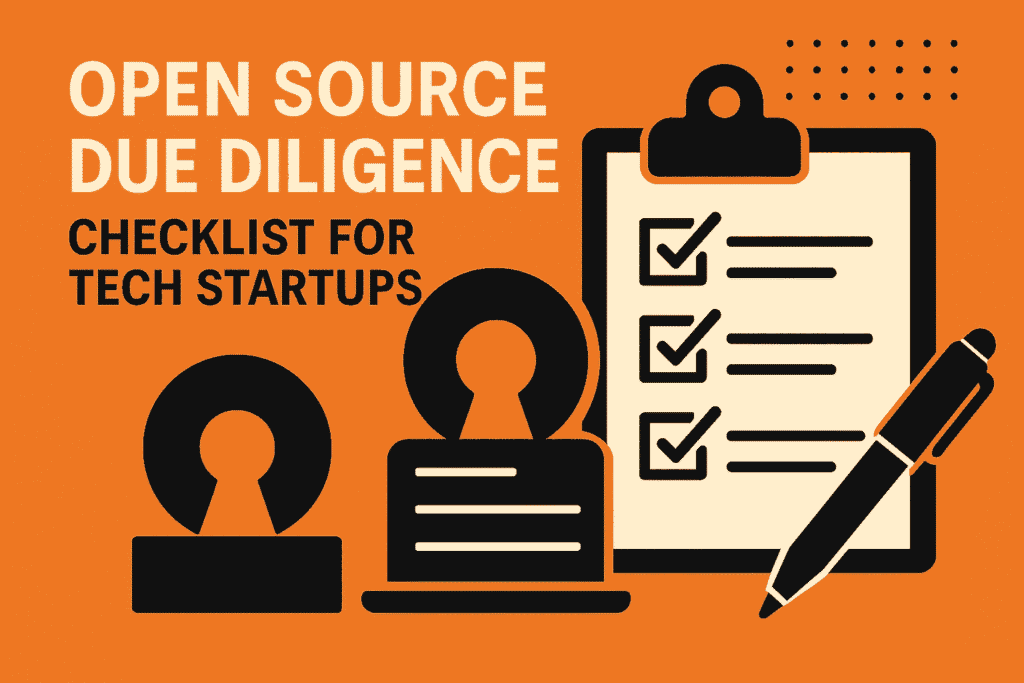If your startup is preparing for a funding round, partnership, or acquisition, there’s one thing that can quietly make or break the deal: your open source software stack. Due diligence is no longer just about finances and market opportunity. Investors and legal teams now dive deep into the codebase to uncover software risks, especially around open source components.
In this blog, we break down how tech startups in Dubai and the USA can proactively prepare for open source due diligence. Whether you’re pre-Series A or scaling fast, this checklist will help you avoid deal-breakers and build trust with stakeholders.
What Is Open Source Due Diligence?
Open source due diligence is the process of evaluating how your company uses open source software (OSS) to identify potential legal, security, and licensing risks. This is especially critical when your product includes third-party libraries, dependencies, or is built using open-source frameworks.
Unlike a full compliance audit, due diligence often happens during:
- M&A processes
- Venture capital or private equity investments
- Strategic partnerships or enterprise client onboarding
It’s all about reducing risk—for you and for your investors.
Why It Matters for Startups in Dubai & the USA
Startups operating in innovation hubs like Dubai’s DIFC Innovation Hub or U.S.-based accelerators are increasingly asked for proof of software compliance. Local VCs, government programs, and global acquirers want assurance that your software:
- Doesn’t contain conflicting or viral licenses
- Is properly documented and legally safe
- Is maintainable and compliant with best practices
A single GPL license in the wrong place can trigger legal red flags and slow down everything from funding to product launch.
To understand how these risks evolve, check out Open Source Compliance 101.
The Open Source Due Diligence Checklist
Here’s what your startup needs to prepare before the questions start coming:
✅ 1. Inventory All Open Source Components
Start by identifying every OSS library, framework, or package in your product. Use automated tools like:
- FOSSA
- Black Duck
- ScanCode Toolkit
This inventory will form the basis of your SBOM (Software Bill of Materials).
✅ 2. Generate a Software Bill of Materials (SBOM)
A clean SBOM shows transparency. It lists:
- Package name & version
- License type
- Source repository
- Usage location in code
If you’re unsure how to generate one, our Open Source Compliance Management services can help.
✅ 3. Validate License Compatibility
Check if all licenses are:
- Permissive (MIT, Apache 2.0, BSD)
- Copyleft (GPL, AGPL)
Flag any components with viral licenses that might force you to open-source your entire product. Learn more in our blog on 7 Common Mistakes Companies Make in Open Source Compliance.
✅ 4. Remove or Replace Problematic Dependencies
If something looks risky, consider:
- Replacing it with a safer alternative
- Getting legal review
- Writing your own wrapper
✅ 5. Assign Internal Responsibility
Designate someone (usually your CTO or DevOps lead) to own OSS compliance. Document decisions and processes.
✅ 6. Automate Ongoing Scanning
Set up CI/CD integration for continuous license scanning. Use open-source or enterprise tooling.
✅ 7. Document Your Internal Policy
Have a short internal guide that covers:
- What types of OSS are allowed
- Review and approval process
- Contribution guidelines for devs
What Happens If You’re Not Prepared?
During due diligence, unprepared teams face:
- Funding delays or cancellations
- Contract breaches with clients
- M&A deals falling apart
- Bad press or legal exposure
If you want to avoid these, check out What to Expect During an Open Source Compliance Audit.
How Yahyou Supports Dubai and US Startups
We’ve worked with growth-stage startups across Dubai and the U.S. to:
- Conduct open source compliance audits
- Generate SBOMs
- Prepare due diligence-ready documentation
- Implement automated license scanning tools
Want a faster, smoother funding round? Our Open Source Compliance Management experts are just one message away.
Frequently Asked Questions
Do pre-seed startups need OSS due diligence?
Yes. The earlier you prepare, the easier it is to avoid technical debt and risk down the line.
Can’t we just scan with free tools?
Free tools help, but they lack legal interpretation, enterprise support, and policy enforcement.
Is due diligence the same as a compliance audit?
Not exactly. Due diligence is stakeholder-facing and often faster. Audits are more detailed and internal.
Preparing Now Means Scaling Faster
Preparing your open source software stack for due diligence is no longer optional. It’s a competitive advantage. The earlier you implement compliance best practices, the more confident your investors, clients, and partners will be.

